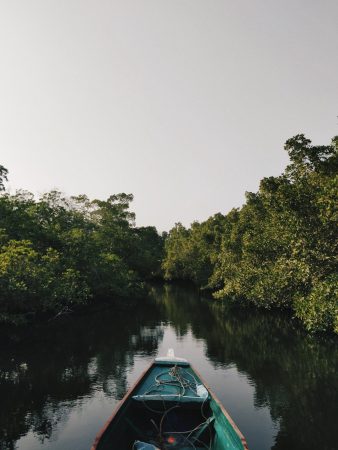Local People’s Participation in Mangrove Restoration Projects and Impacts on Social Capital and Livelihood: A Case Study in the Philippines

Valenzuela et al. 2020
Participatory management of mangrove restoration projects by local People’s Organisations in two communities in Quezon, Philippines, has been shown to provide substantial benefits for the people involved as well as increasing long-term sustainability of the restoration projects themselves. Members of People’s Organisations increased their social capital by gaining more numerous and more diverse social ties. This, in turn, provided them with a variety of social benefits, such as:
- Greater access to government-led livelihood programmes, such as mushroom farming, mechanisation for sugar production, and low-cost medicine schemes. Increased access came via greater knowledge of programmes’ existence, as well as favoured enrollment due to the good track record of the People’s Organisations.
- Increased access to such programmes increased members income, in turn making health and educational services more available.
- People’s Organisations also established funds for emergency borrowing, enabling people to borrow money without collateral.
Such benefits incentivised people to participate in People’s Organisations, and encouraged long-term commitment to the projects. This, in turn, is thought to have increased the sustainability of the mangrove restoration projects. Hence, social capital both enables the implementation of the nature-based solution and is an outcome of the projects.
These examples also show how NbS can develop from locally-initiated projects; the two People’s Organisations were originally formed to fight private and individual attempts to illegally convert mangroves into fish ponds. From these relatively small-scale initiatives, the groups collaborated with government agencies to create reforestation and broader livelihood development projects.
Read the paper here.




